The 20 Best NJ Legislative Elections of the Last 20 Years
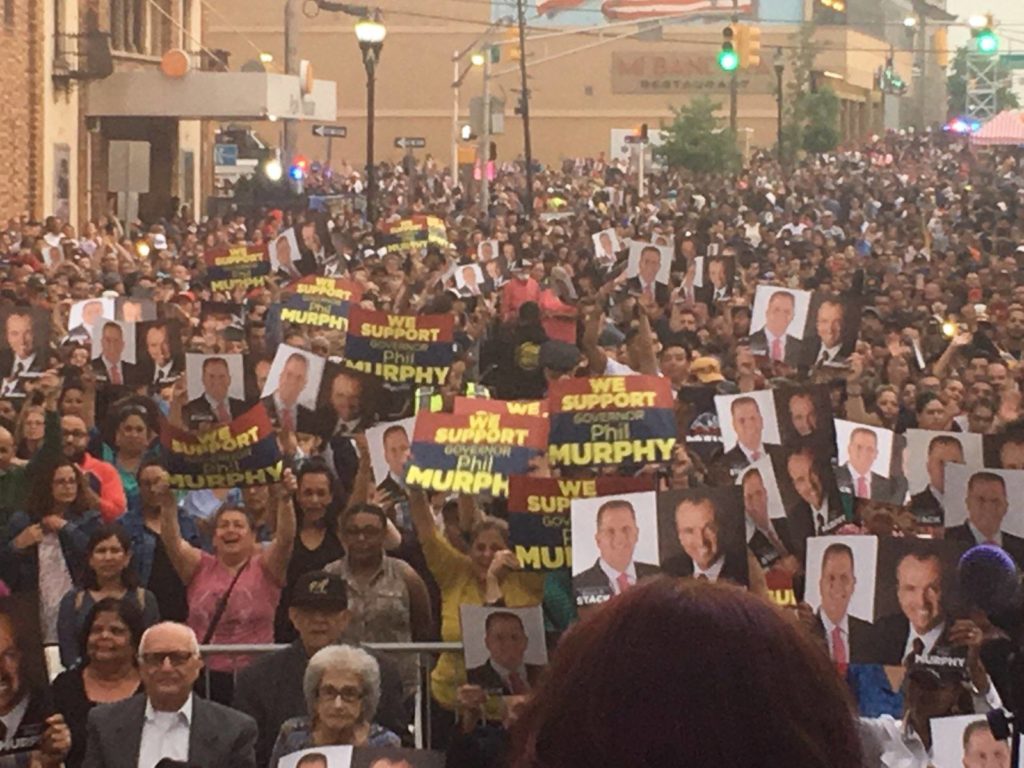

- Legislative District 20 Democratic Primary: 2011

Ultimately great races require a great adversarial clash and dynamic strategy. Before it was all over, this contest summoned a complete implementation of every campaign game facet in order for incumbent state Senator Ray Lesniak, Assemblyman Joe Cryan and Assemblywoman Annette Quijano to win. It started with the bitter rivalry between Lesniak and Rafael Fajardo, the power behind the Elizabeth Board of Education. Trying to broaden his power and build on his local control of the board, Fajardo - who

had endorsed Chris Christie in 2009 - fielded a strong team of challengers headed by Assistant Superintendent Jerome Dunn for senate, and veteran Tony Monteiro and rising star Carlos Cedeno for assembly. In an all-out war, future Senator Cryan demonstrated superior organization in his hometown of Union Twp. while Lesniak kept the challengers bogged down in court. Dunn and his team won Elizabeth, but the hinterlands delivered the win for the incumbents, who thereafter set about dismantling the Fajardo-led Elizabeth Board of Ed, which reached its political apex in 2011. The final score in the senate race was Lesniak 8,124 and Dunn 7,335. In the assembly contest, Cryan led the way with 8,161, followed by Quijano (7,977). On the losing ticket, Monteiro received 6,743 and Cedeno 6,715 votes.
2. LD2 General Election: 2007

The late Senator Jim Whelan (D-2) of Atlantic City ran some great races in his life, and this year proved the pinnacle of his career when he defeated incumbent Republican Senator Sonny McCullough (28K to 21K) nab the senate seat vacated by then-newly retired Senator Bill Gormley. It was a split ticket result, however, as Assemblyman Vince Polistina (R-2) and Assemblyman John Amodeo (R-2) won the two assembly seats, defeating Whelan's running mates Blondell Spellman and Joe Wilkins (respectively 25,603 and 26,214 to 21,699 and 19,260. Over the course of the next ten years, Whelan enhanced his party's assembly majority by pulling a pair of Democratic running mates, and - in difficult political
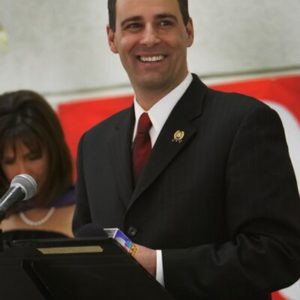
weather during the Christie years - stared down the GOP's strongest general election comers, including Polistina in 2011 and Atlantic County Sheriff Frank Balles in 2013. This first contest set the pace. After Mr. Whelan's death, the seat went back to Republican hands in 2017 with Senator Chris Brown's (R-2) hard weather victory over Democrat Colin Bell, even as Democrats maintained control of the Assembly in LD2. Then Senate President Dick Codey (D-27) contributed $800K late to Whelan (and spent some folksy face time on the senate candidate's front porch) in an effort to make a close personal appeal to the fellow sports guy (Mr. Whelan was a champion swimmer). But Whelan closed ranks with the rest of South Jersey two years later when it came time for the caucus to count up votes in favor of a senate leadership shift away from Codey to Sweeney.
3. LD12 General Election: 2007
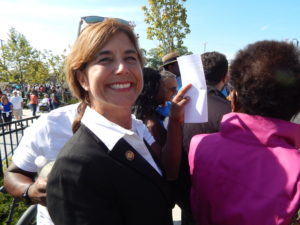
This intense, hyper competitive contest ended when Republican Jennifer Beck ousted incumbent Democratic Senator Ellen Karcher (26,743 to 22,844 votes) and established a distinguished ten-year run in office. No legislative race in recent memory has featured quite this level of policy-specific in-fighting between two highly trained antagonists. All insider eyes focused on the statewide implications of this contest, as then-Senate President Dick Codey went all in for Karcher and campaigned district-wide at her side, in hopes of maintaining control of his caucus against a determinedly approaching Senator Steve Sweeney (D-3). Less enthused about Karcher because of Codey, South Jersey backed the Democratic senator's running mates

(Assemblyman Michael Panter and Fair Haven businesswoman Amy Mallet), who would received nearly $1 million and lose to Assemblywoman Caroline Casagrande (R-12) and Assemblyman Declan O'Scanlon (R-12 and 13). Karcher's loss to Beck worked to the advantage of Sweeney, who would ultimately summon the votes to dethrone Codey in 2009). In a demonstration of influence by a fading news media in what might have been the newspaper industry's last epic coverage of a legislative race, The Asbury Park Press and NJ.com (actually veteran reporter Deb Howlett, who would go on to work in the Jon Corzine Administration after the cycle) fought to break a damaging story about the incumbent Democratic senator's farmland assessed property. It hurt Karcher, and led Joe Pennacchio to later coin the phrase (in reference to the similarly farmland assessed Dick Zimmer), "He's got a Karcher problem." Beck would to on to lose to Senator Vin Gopal in 2017, the consequence of Christie riding a dismal 16% job approval rating into the sunset and the NJGOP brand annihilating ascent of Donald Trump. 2011 redistricting separated the Little Silver-based O'Scanlon from Beck and Casagrande. They would lose, in 2015 and 2017 respectively, while he would seize advantage of Joe Kyrillos's (R-13) 2017 retirement to seize the LD13 senate seat, where he resides to this day.

4. LD23 Republican Primary: 2009

The Republican establishment in Hunterdon and Warren counties respectively under the leadership of Chairman Henry Kuhl and Chairman Doug Steinhardt was trying to hold itself together to (partly) protect top of the ticket Republican Gubernatorial candidate Chris Christie and maintain district-wide order in the aftermath of U.S. Rep. Leonard Lance (R-7) vacating his LD23 senate seat. At a special district-wide convention, Assemblywoman Marcia A. Karrow (R-23) defeated Assemblyman Mike Doherty (R-23) to fill the vacancy. But movement conservative Republican Doherty refused to get behind Karrow and ran an off-the-line senate candidacy under GOP candidate for Governor Steve Lonegan, the former mayor of Bogota. In his 42-55% loss to Christie statewide, Lonegan picked up four counties, two of which were Hunterdon

and Warren, the bedrock of the 23rd District. That combined with Doherty's own fierce grassroots door-pounding effort shocked Karrow, and Doherty retired her 52-48% to claim the senate seat he still occupies. Redistricting two years later separated neighboring Senator Kip Bateman (R-16) from Bridgewater (forcing Bateman to eat Democratic-friendly South Brunswick), lumping Somerset's biggest town in Doherty's lap at least until 2021 redistricting when Bateman - in jeopardy - hopes to reclaim the key historically GOP-friendly town. A Bridgewater race this year (where Doherty backed Matt Moench, victorious in the GOP Primary, over establishment incumbent Mayor Dan Hayes, with the general election still undecided) has long-term control consequences in both districts 16 and 23.

5. LD33 Democratic Primary: 2007
The retirement of long-serving erudite Senator Bernard "Bernie" Kenny of Hoboken summoned forth a clash between assemblymen Brian P. Stack and Silverio "Sal" Vega, respectively the mayor of Union city and neighboring West New York. Vega had the backing of the Hudson County Democratic Organization (HCDO) run at that time by HCDO Chairman Jerry Healy (then the mayor of Jersey City). Stack buried Vega in the primary (18.2K to 5.6K votes), dealing a loss not only to the HCDO but to Codey, who had claimed Kenny as an ally in his ongoing efforts to spur South Jersey from claiming control of the senate

presidency. An empowered Stack gave Sweeney a critical vote toward his 2009 caucus victory over Codey to establish a legislative power structure that has lasted to this day. Critically, Stack's victory over the HCDO signaled the presence of someone who refused to be controlled by the organization, a dynamic that persists to this day. That said, Stack showed more of a willingness to fold into the organization at critical junctures following his 2018 challenge for the HCDO chairmanship, which he lost to sitting Chair Amy DeGise. Vega gone, and Healy later ousted in Jersey City, Hudson County Executive Tom DeGise represented one of the last of the HCDO old guard, but his daughter's defeat of Stack humbled the young gun from Union City and notified the world that the avuncular DeGise was politically alive and well countywide. Finally, so was Stack, if not countywide at least district-wide, where he remained unbeatable, going back to that first off-the-line win over Vega.
6. LD3 General Election: 2017
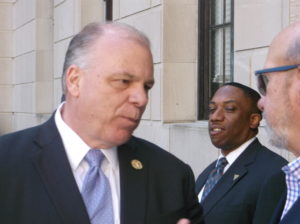
If not finally the most competitive election (Sweeney blew away his Republican opponent Fran Grenier 59-41%), it makes this list by virtue of scale and implications. First, as everyone knows, this was, in fact, the most expensive legislative election in the national history of legislative elections, with Sweeney and his allies spending an estimated $13.8 million and Grenier trying to make something happen with $4.8 million from Garden State Forward, a PAC friendly to the interests of the New Jersey Education Association (NJEA). Following the contest,

Sweeney (and South Jersey power broker George Norcross III) held a grudge. They believed Democratic gubernatorial nominee Phil Murphy - running on a public sector union-friendly message - should have had sufficient influence to wrassle the NJEA dogs out of the senate president's district. Murphy allies insisted union members still remembered Sweeney's multiple maneuvers with Christie (including an NJEA-member-hurtful pen-ben overhaul). In any event, whether or not the neophyte Murphy could have exerted any control, the damage was done. Sweeney crushed Republican Grenier, then set about tying to crumple the governor-elect (and subsequently his administration) into a ball of dysfunction.
7. LD14 General Election: 2013

Having sawed through every formidable prime time Republican left standing, dethroning incumbent Republican Senator Tom Goodwin (who assumed the seat following the senate retirement of Bill Baroni), and handling tough out Richard Kanka, Senator Linda Greenstein (D-14) chopped down a come-backing former Senator Pete Inverso (50.4-48%). This was the same year that Republican Governor Christie destroyed Democratic challenger Barbara Buono at the top of the ticket. Inverso had wanted more resources from Christie, but the Republican incumbent governor - breathing down the neck of the presidency - focused his efforts on campaigning with Stack and Essex County Executive Joe DiVincenzo in an effort to spike the Latino vote on his behalf. Unable to completely lie down in competitive districts 14, 38 and 18, he cut a generic ad slapping at Democratic

incumbents but otherwise left Republican candidates to fend for themselves. He stayed completely away from the heartland of Sweeney country (LD1 and LD3), leaving Republican challengers there to conclude the worst about the implications of a Democratic Party establishment Christie reelection deal. But in addition to the assistance she received from the senate majority, Greenstein entered the contest with Inverso as her own battle-tested fireplug brand, having weathered a lot of the most tumultuous times of the battleground 14th District. In retrospect, her slender win over Inverso under Christie's 60-38% blowout of Buono probably wrongly gave the impression of invincibility - just in time for her 2014 Democratic Primary loss to U.S. Rep. Bonnie Watson Coleman's (D-12) for the seat vacated by retiring U.S. Rep. Rush Holt (D-12). Having learned a painful primary lesson after a lifetime of life and death general election struggles, Greenstein went back to the vineyard in LD14 (much like Stack in Hudson after his loss to DeGise).
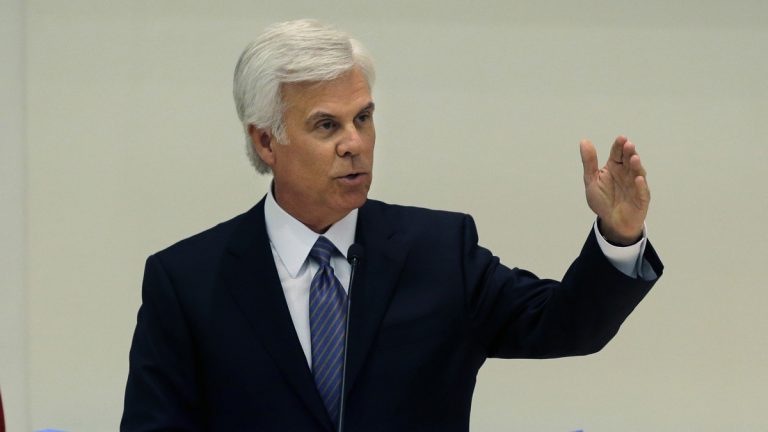
8. LD3 General Election: 2001
Sweeney probably doesn't enjoy setting expense records but that's what he does. Nearly two decades ago, the ironworker from Gloucester County defeated incumbent Republican Senator Raymond Zane of Woodbury (who had changed parties earlier the same year, from D to R) in what was at that time the richest legislative race in state history with Sweeney spending $1.8 million to Zane's $624,000. Backed by powerful South Jersey Democratic boss George Norcross III, Sweeney won by a 51.5-48.5% margin and began his caucus march (defined early by his controversial proposal of public pensions and benefits reform, later ratified by Republican Christie) to take out Codey just eight years later and begin a ten-year reign as New Jersey's imperial senate president, in the words of Politifax's Nick Acocella.
9. LD26 Republican Primary: 2007

This was the race that gave birth to Assemblyman Jay Webber (R-26) in the Republican caucus room. Four years after challenging incumbent Republican Senator Robert Martin and losing by 1,900 votes, Webber met Kinnelon Councilman Larry Casha in the GOP Primary for a vacant assembly seat created by Joe Pennacchio's leap upward to claim Martin's senate chair. Young upstart Webber stunned and manhandled Casha, making him answer for local votes to raise taxes and shocking the GOP establishment with an especially sharp-elbowed campaign. The race affixed

Webber as a legitimate young GOP star, enough of a force to be reckoned with that Christie, looking to shore up the Lonegan wing of the party after he beat the former Bogota Mayor in the 2009 Republican Primary, tapped te Harvard-educated Webber to succeed Tom Wilson as state GOP chair. Seemingly tailor-made to succeed U.S. Rep. Rodney Frelinghuysen (R-11), Webber ran afoul of voters in 2018 by association, as suburbanites infuriated by Republican President Donald J. Trump, ran over Webber behind the candidacy of newcomer U.S. Rep. Mikie Sherrill (D-11).

10. LD28 Democratic Primary: 2007
As it turned out, it wasn't as leadership-consequential as the LD29 Democratic Primary that same year, when the candidacy of state Senator M. Teresa Ruiz (D-29) showed off the strength of the Newark North Ward Democratic Organization en route to Ruiz (deputy chief of staff to DiVincenzo, who landed the county executive seat in 2002 with the backing of South Jersey's Norcross [and then-U.S. Attorney Christie] over Codey ally Assemblyman Tom Giblin) critically backing Sweeney for senate president over fellow Essex Senator Codey in 2009. But the LD28 race showed off the political resiliency of veteran state Senator Ronald L. Rice (D-28) of Newark. A year earlier, late local entrant Rice got run over by future presidential candidate Cory Booker in the nonpartisan contest to succeed Mayor Sharpe James. Now the organization looked to do him in utterly behind the senate candidacy of Freeholder L. Bilal Beasley. Running a van-mounted bullhorn campaign out of his west ward, Vietnam veteran Rice beat Beasley with 52% of the vote, a closer margin than a 2001 tilt with Assembly Majority Leader Willie

Brown in 2001. Booker exulted publicly with the news that the Essex Democratic Committee had taken five out of the six legislative seats up for grabs in the primary. But one veteran establishment source bitterly noted the organization headache of not having expunged Rice. "There are always casualties," the Marine Corps sergeant grimly said of the loss of his James-era running mates, Assemblyman Craig Stanley and Assemblywoman Oadline Truitt, supplanted by newfound Rice allies Assemblyman Ralph Caputo (D-28) and Assemblywoman Cleopatra Tucker (D-28). Rice couldn't single-handedly keep Codey on the senate throne in 2009. But from the standpoint of having an independent Democratic Party voice in a legislature otherwise choked off by establishment dominance and largely lobotomized by a South Jersey-centric brain trust, the Patrick McGoohan-like Rice proved the ultimate consequential survivor individual.
11. LD31 Democratic Primary: 2003
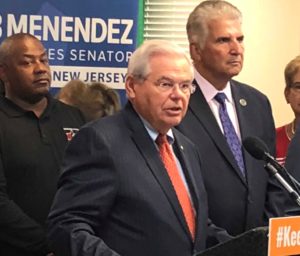
At war with U.S. Rep. Bob Menendez (D-NJ) and the Hudson County Democratic Organization (HCDO), then-Jersey City Mayor Glenn Cunningham defeated the HCDO-backed L. Harvey Smith 10.7K to 8.6K votes and consolidated his independent leadership brand in the county's biggest municipality. Cunningham's assembly running mates, Lou Manzo and Anthony Chiappone, also won off the line with the slogan Democrats for Hudson County, defeating local legend (and former Speaker) Joe Doria and Elba Perez-Cinciarelli. Mr. Cunningham backed fellow Marine Steve Fulop for Congress in 2004, and died while campaigning with Fulop, who lost to Menendez, but prevailed in a 2013 mayoral bid. Although he died not long after this signature anti-establishment victory, Senator/Mayor Cunningham established the gold standard for larger-than-life New Jersey urban independent leadership.
12. LD40 Republican Primary: 2017
Former Assembly Majority Leader Paul DiGaetano had long craved a state senate seat, but he ran afoul

of Senator Kevin O'Toole, who prior to announcing his own retirement made certain to set up an alternative mechanism to deny DiGaetano a surge of power. O'Toole partnered with Passaic County GOP power broker Peter Murphy to help catapult Passaic County Clerk Kristin Corrado into the seat he vacated. In somewhat of an anti-climax that belied the amount of preparation and work that gone into suffocating the opposition, Corrado buried the not-ready-for-prime -time DiGaetano, 62-30%, who went down amid his own accusations of "fake news."

13. LD16 General Election: 2015
The 2011 redistricting commission trade up of Bridgewater for South Brunswick finally proved too much for the GOP to stave off, as incumbent Assemblywoman Donna Simon (R-16) lost by just 78 votes to Assemblyman Andrew Zwicker (D-16). Assemblyman Jack Ciattarelli (R-16) survived the cycle, but retired from the assembly rather than run for reelection and in the same year that Zwicker won reelection with running mate Roy Freiman, lost his own statewide bid for governor in the 2017 Republican Primary.

14. LD11 General Election: 2015
This was the year when considerable money from the since all but-estranged New Jersey Education Association and the Assembly Majority Office controlled by South Jersey came together to oust (behind the candidacies of challengers Eric Houghtaling and Joann Downey) incumbent Assemblywoman Mary Pat Angelini (R-11) and Asemblywoman Caroline Casagrande (R-11).
The Democratic wins set the scene for former Monmouth County Democratic Committee Chairman Vin Gopal to run for the state senate in LD11 on top of a ticket with incumbents Houghtaling and Downey and defeat incumbent Republican senator Jen Beck in 2017.
15. LD1 General Election: 2017
It wasn't the intrigue of the race itself (Jeff Van Drew's 2007 knock-off of incumbent Republican Senator

Nick Asselta probably provided more of that). Just as in other key 2007 battleground races (LD2 comes immediately to mind) conservative Democrat Van Drew victorious gave Sweeney another vote toward taking over the senate. But in terms of nullifying the competition in a Republican district and creating the perfect narrative for a 2018 congressional campaign, (which he eventually won, over movement conservative Seth Grossman), Van Drew provided his finest hour politically in the legislature when he ran over Republican challenger Mary Gruccio 35.4K to 18.5K. There were incremental moves leading up to that point, including the 2013 meltdown of running mate Nelson Albano and Van Drew's careful selection of war veteran Robert "Bob" Andrzejczak as a replacement. Everytime Republicans tried to attack, Van Drew and his team hummed the Battle Hymn of the Republic. it was smart (and, for the GOP, nerve-wracking) politics. Now Van Drew's in Congress and Andrzejczak is running in this year's cycle to succeed him.
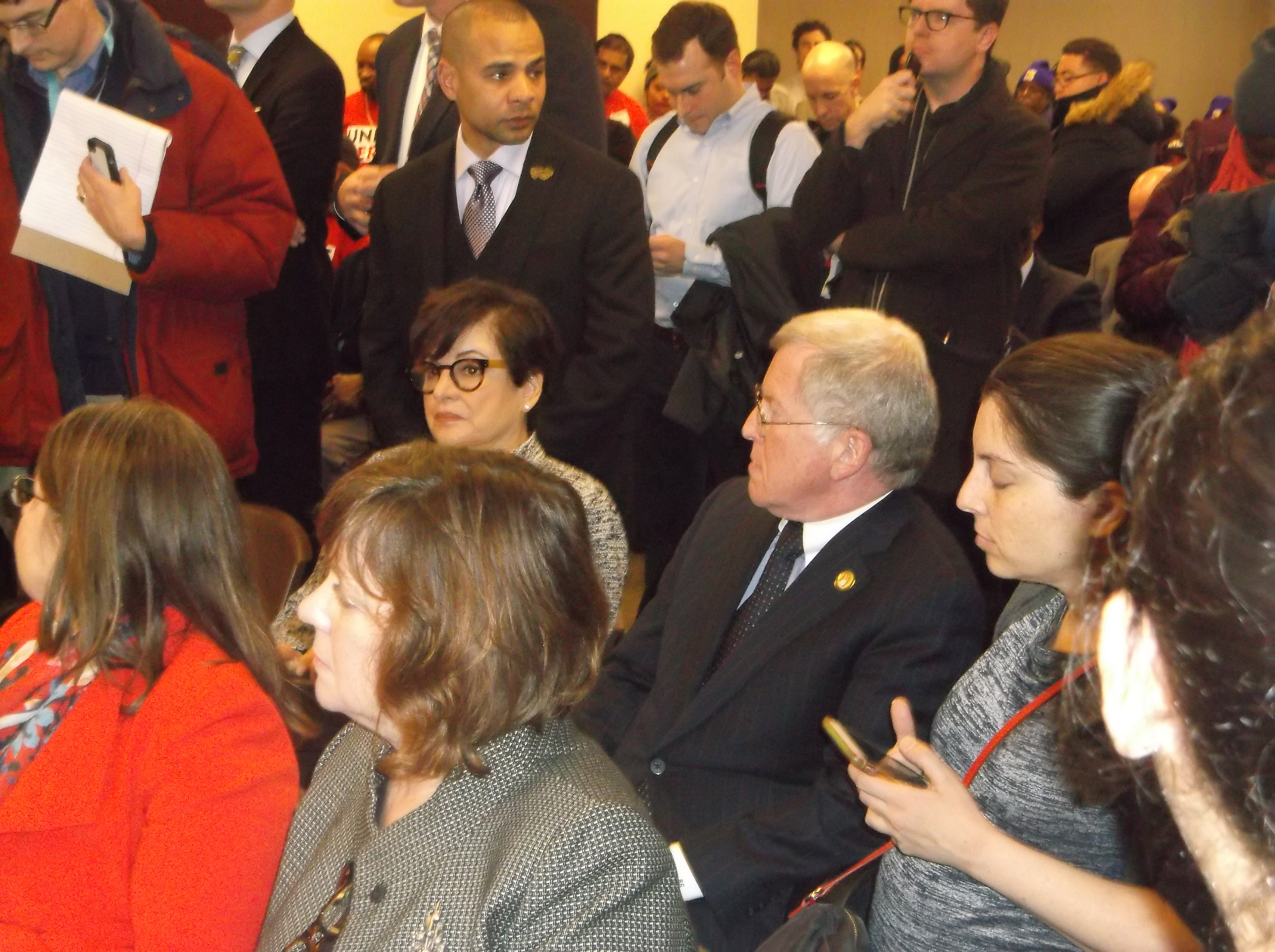
16. LD38 General Election: 2013
Just as Linda Greenstein and Peter Barnes had in LD14 and LD18 respectively, incumbent state Senator Bob Gordon (D-38) faced a real challenge here in a district where Christie was savaging his Democratic opponent at the top of the ticket. It was a typically brutal and ugly affair and Christie campaign with Gordon's Republican opponent, but the veteran Democrat defeated Fernando Alonso 51.9-48.1%.
17. LD24 Republican Primary: 2007
Another one from 2007. There were so many retirements that year, including the late state Senator Bob

Littell. As he vacated his mountain man seat, the Republican leader backed banker Steve Oroho on a ticket with his daughter, incumbent Alison Littell McHose and Gary Chiusano. Former ticket mate Assemblyman Guy Gregg ran an insurgent candidacy. We've written about this before but just as Karcher and Beck provided a vigorous intellectual collision in the 2007 general election, Gregg and Oroho went toe-to-toe in Newton in that year's most intense debate match-up. Depicting himself as a small government kind of guy, Oroho would prevail, in part by dredging up Gregg's vote in favor of a cigarette tax. The veteran senator would prove a key ally for Sweeney, ironically becoming known in part for being a proponent (as part of a larger design) of a gas tax hike.
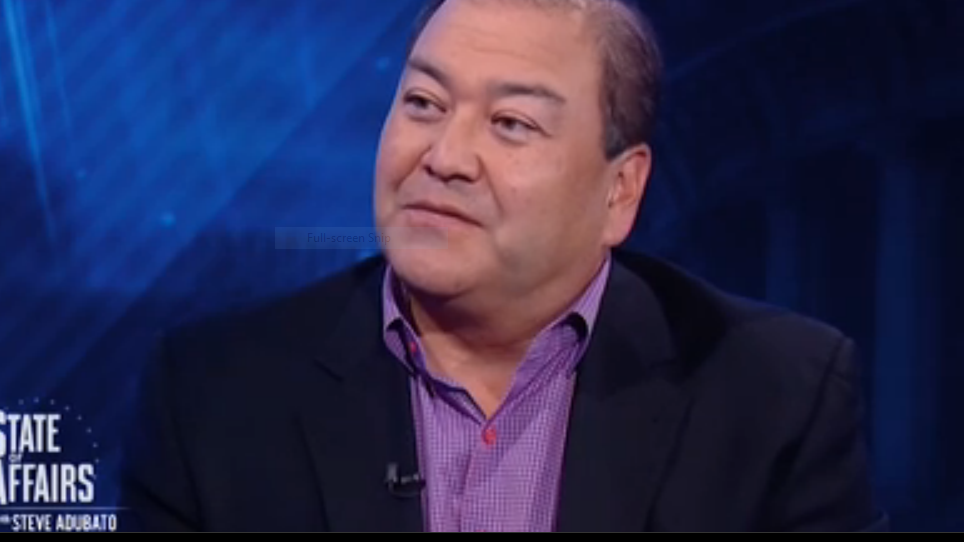
18. LD40 Republican Primary: 2007
The retirement of 22-year incumbent Senator Henry McNamara set up a GOP Primary between veteran Assemblyman Kevin O'Toole and Bergen County Freeholder Todd Caliguire, who stepped over the line with a mailer that likened O'Toole to the Rev. Al Sharpton. The final vote tally was O'Toole 5,392, Caliguire 4,062. “Errors in judgment are sometimes made during heated, hard fought and increasingly bitter campaigns such as the recent Republican primary battle in District 40," a chastened Caliguire said in the aftermath. The long-term effects of having O'Toole in the senate proved beneficial to both Christie and Sweeney, as the Cedar Grove-based Republican used his influence to help forge closer ties between the Republican Governor and South Jersey-connected Democrats.
19. LD31 Democratic Primary: 2007
The iconic endurance of the Cunningham brand (see above) all but required the HCDO to put together a

peace-seeking unity ticket behind his widow, Sandra Bolden Cunningham, who, running with Chiappone and family nemesis Smith, beat Assemblyman Lou Manzo (and future Assemblyman Nick Chiaravalloti) to win the senate seat she has occupied to this day. This was an interesting race in part because Manzo was allied with Stack in LD33. Manzo's own district-wide, Jersey City-based enate effort was part of a larger vision he shared with Stack to crack the back of the HCDO. If their goal was to take over Hudson County, they failed, but Stack's victory ensured a partial realization of the victory, while Cunningham in office kept the family legacy afloat.
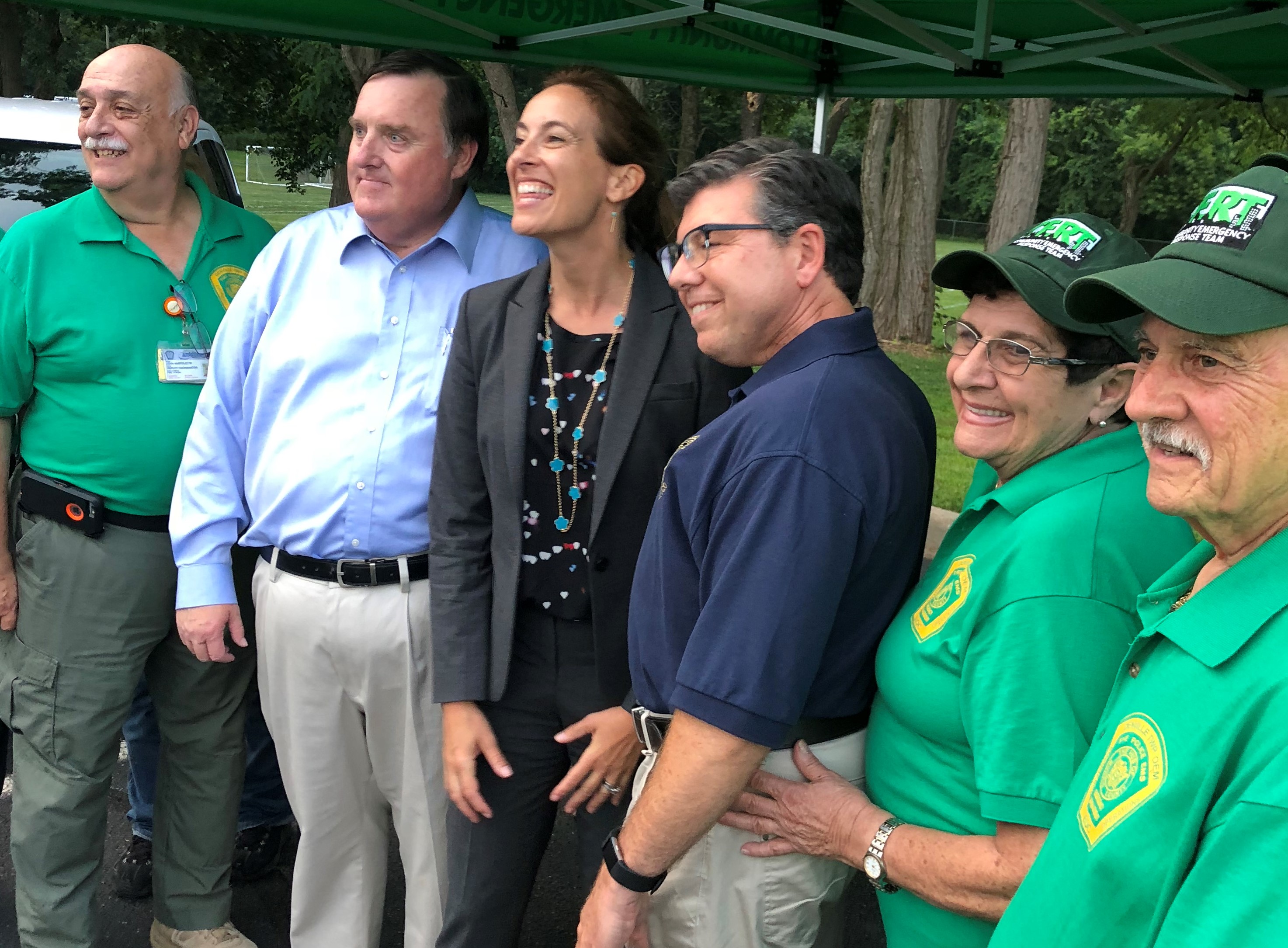
20. LD25 Republican Primary: 2009
The retirement of Assemblyman Richard Merkt created an intra-family fight between Tony Bucco, Jr., son of Senator Anthony Bucco, Sr., and Morris County Freeholder Doug Cabana. Bucco, Jr. is married to Cabana's sister, but the two men never got along, a rivalry intensified by the campaign. Predictably, it got ugly, with Cabana challenging Bucco to explain the number of public contracts he has, and Bucco, Sr. spent time in the hospital as the intensity mounted and the family threatened to rupture, but finally the Bucco family name prevailed.
***21. LD34 Democratic Primary: 2003
An InsiderNJ reader - seeing this list - noted the Democratic Primary of 2003, when Nia Gill of Montclair - despite not having the line - defeated Leroy Jones of East Orange with 55% of the vote. They both landed on their feet. Gill is still the state senator representing the district. Jones is chair of the Essex County Democratic Committee.
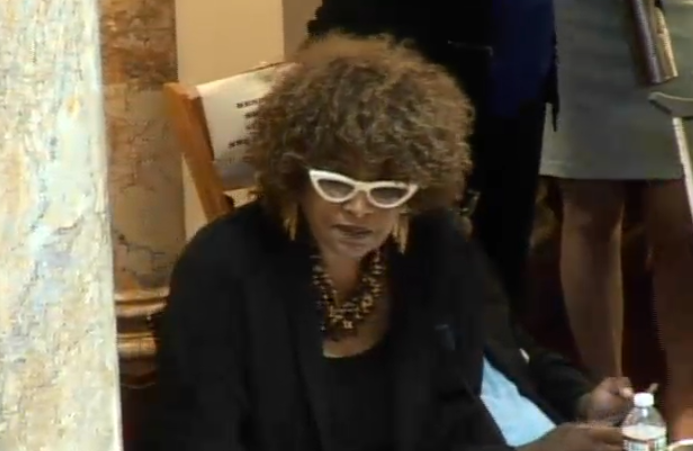
22. LD4 General Election: 2003
Appointed to fill the Senate seat vacated by John J. Matheussen, District 4 incumbent Republican
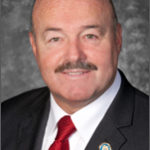
Senator George Geist could not maintain his hold on the district in this key general election. It was one of the most expensive legislative races, prior to District 3 in 2017, as Geist was outspent by $4 million ($5 million to $1 million) and lost to George Norcross-backed Democratic challenger Fred Madden by 66 votes. Madden, of course, would go on to form part of the foundation of caucus votes that made (and maintained) the senate presidency of Steve Sweeney.





